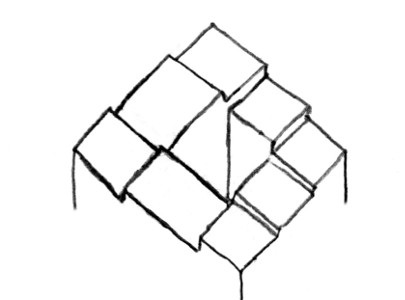The Elo paradox

I was showing yesterday's post to a friend and he made the point that the feeling of constant improvement is very important, motivationally speaking, and that works against keeping your goals modest and reasonable. In fact, I think there's a very fundamental conflict between motivation and improvement, which I call the Elo paradox.
Chess, as well as many online competitive games, use an Elo-based rating system. Essentially these systems try to create a predictive measurement for you as a player, such that two people with equal ratings are equally likely to win a match against each other. There have been various improvements since then, but the core concept is the same: your skill can be represented as a prediction of how likely you are to win. It's a powerful idea and yields very accurate skill measurements.
But as good a rating system as it is, Elo is terrible game design. Almost everyone's journey in an Elo-ranked system looks the same: they come in as a beginner with an abysmal score. They have an initial burst of improvement that pushes their score into the low end of average. They work hard on their average score and eventually turn it into a slightly above average score. Their score stops going up. They have a bad week and lose a bunch of games. Their score drops. They stop playing for a little while. They come back rusty. Their score drops even more. They stop playing for good.
The problem is that we want to feel a sense of progress. It's nice to be better than you were yesterday. But the tragic reality is that won't always be true. Mostly you're the same, and sometimes you're worse. That's the Elo paradox, in a nutshell: you can't have an accurate measurement of your ability that always increases.
For that reason, I think getting your motivation from an intrinsic measurement is fundamentally silly. Maybe it works for some people, but it seems obvious to me that you'll always run up against that skill ceiling at some point or another and see your results taper off. Instead I prefer to focus on cumulative output. That has the nice quality of being a measurement you can always control, and it always goes up.
I might not move faster than yesterday, but I've moved further. I might not be smarter, but I've thought more. I might not be better, but I've done more.